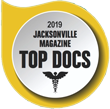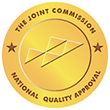Recovery from substance abuse isn’t just about stopping drinking or using drugs. It’s about learning to live with the feelings that substances once helped you escape. At Recovery Keys in Ponte Vedra Beach, we understand that beneath every addiction lies a person who’s been trying to survive overwhelming emotions the only way they knew how.
Dr. Jeremy Mirabile and our compassionate team of recovery experts have witnessed countless individuals discover that recovery isn’t about becoming someone new—it’s about finding the strength that was always there, buried beneath years of pain and numbing.
What DBT Really Means for Your Recovery Journey
Dialectical Behavior Therapy (DBT) might sound clinical, but at its core, it’s profoundly human. Created originally for people who felt emotions so intensely they seemed unbearable, DBT has become a cornerstone of addiction treatment because it addresses the emotional storms that often drive substance abuse.
Think of DBT as learning a new language—the language of your own emotions. Instead of substances translating your pain into temporary relief, you develop your own vocabulary for understanding, sitting with, and moving through difficult feelings.

The Four Pillars That Hold Recovery Together
Mindfulness: Coming Home to Yourself
Many people struggling with alcohol and drug addiction describe feeling disconnected from themselves. Mindfulness in DBT isn’t about meditation retreats or perfect peace—it’s about learning to be present with yourself, even when that self is struggling.
Distress Tolerance: Riding the Wave
Recovery teaches us that emotions, no matter how intense, are temporary. Distress tolerance skills help you survive the worst moments without returning to substances. It’s about learning that you can feel terrible and still be okay.
Emotion Regulation: Understanding Your Inner Weather
Addiction often develops as a way to control emotional pain. DBT helps you understand your emotional patterns, recognize early warning signs, and develop healthy ways to influence how you feel.
Interpersonal Effectiveness: Rebuilding Connections
Substance abuse damages relationships with others and with yourself. These skills help you communicate your needs, set boundaries, and rebuild trust in a way that supports your recovery.
How DBT Addresses the Real Challenges of Addiction
When Triggers Feel Like Tsunamis
Everyone in recovery knows about triggers, but DBT goes deeper. It helps you understand not just what triggers you, but why, and gives you concrete tools for responding differently. Instead of white-knuckling through cravings, you learn to surf them with skill and self-compassion.
Breaking the Shame Cycle
Addiction thrives on shame, and shame fuels addiction. DBT teaches radical acceptance—not approval of harmful behaviors, but acceptance of yourself as a whole person worthy of recovery. This shift from self-judgment to self-compassion often becomes the foundation for lasting change.
Navigating Relationships in Recovery
Whether you’re rebuilding trust with family, setting boundaries with friends who still drink or use, or learning to ask for help, DBT provides practical skills for maintaining relationships that support your recovery.
Your DBT Experience at Recovery Keys
At our Ponte Vedra Beach location, DBT isn’t a one-size-fits-all program. Dr. Jeremy Mirabile and our team of treatment experts understand that each person’s relationship with substances is unique, shaped by their history, trauma, and individual circumstances.
Individual DBT Sessions
Your therapist works with you to identify your specific emotional patterns and triggers. Together, you’ll practice DBT skills in real-time, addressing the situations and relationships that challenge your recovery most.
DBT Skills Groups
Learning alongside others who understand your struggle creates powerful healing. Our groups provide a safe space to practice new skills, share experiences, and build connections that support long-term recovery.
Integration with Comprehensive Care
DBT at Recovery Keys isn’t isolated from your other treatment needs. Whether you’re receiving medical detox, trauma therapy, or psychiatric care, your DBT skills training is woven into your overall recovery plan.

What DBT Recovery Looks Like Day by Day
Recovery happens in small moments—choosing to call your therapist instead of your dealer, using a breathing technique when anxiety hits, or having a difficult conversation without storming out or using substances.
In DBT at Recovery Keys, you might:
- Practice mindfulness while walking on the beach
- Role-play difficult conversations with family members
- Learn to recognize early signs of emotional overwhelm
- Develop a personalized toolkit for managing cravings
- Build skills for handling conflict without substances
Why Choose Recovery Keys for DBT Treatment?
Dr. Jeremy Mirabile’s Personalized Approach
Recovery Keys was founded on the belief that effective addiction treatment must address the whole person. Dr. Mirabile’s background in both medical and psychological aspects of addiction ensures that your DBT therapy is integrated with any other care you need.
A Healing Environment
Our Ponte Vedra Beach location provides a serene backdrop for the intensive work of recovery. The coastal setting offers natural opportunities for mindfulness practice and emotional grounding.
Evidence-Based Care with Heart
While our methods are grounded in research, our approach is deeply human. We understand that behind every addiction is a person who deserves compassion, respect, and expert care.

Taking the First Step
If you’re reading this, you’ve already taken the most important step—recognizing that you deserve a life free from the control of substances. Whether you’re struggling with alcohol addiction, drug dependency, or co-occurring mental health challenges, DBT offers a path forward that honors both your pain and your potential.
Recovery is not about perfection—it’s about progress. At Recovery Keys in Ponte Vedra Beach, we’re committed to walking alongside you as you discover that it’s possible to feel deeply, live fully, and choose recovery one moment at a time.




















